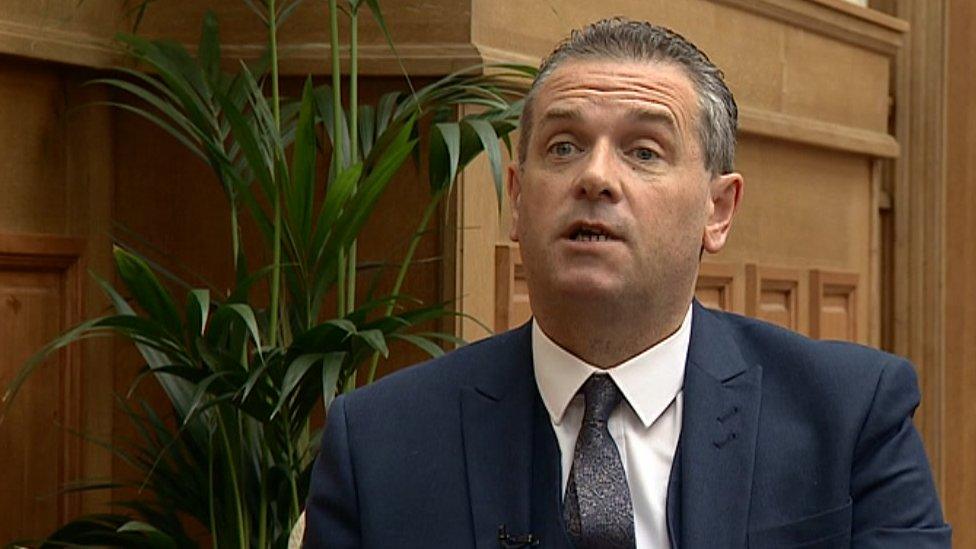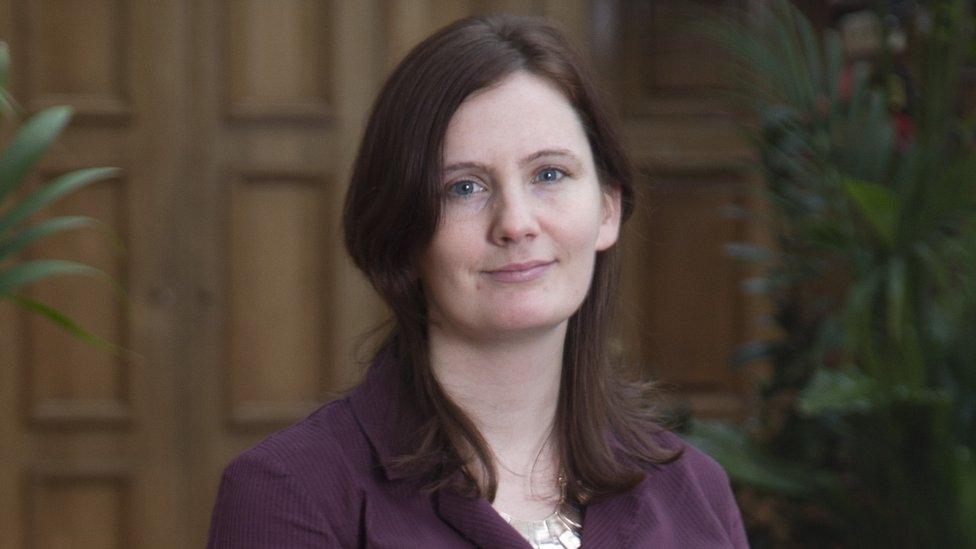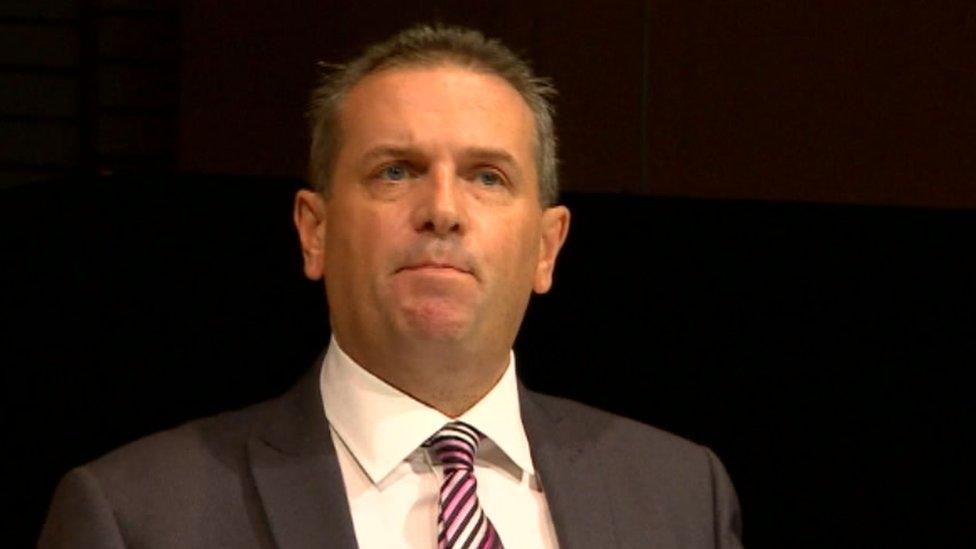Birmingham children's services is 'biggest challenge in politics'
- Published

John Clancy said morale among the city's social workers was "low" and he was fully behind them.
Turning around Birmingham's failing children's services is the "biggest challenge in politics", the city's council leader has said.
John Clancy said there had been "some progress" but it was "not sufficient enough for us all to be satisfied children are safe in this city".
The services, which have seen a number of high-profile child deaths, are to be run by an external trust.
Mr Clancy said the move would mean "larger steps" towards improvement.
Birmingham City Council: What will happen to children's services?
Birmingham children's services: A timeline of the problems
Ofsted has rated the service "inadequate" since 2009 and improvement has "not gone far enough, fast enough", the Department for Education has said.
Child deaths include Khyra Ishaq, seven, who starved and Keanu Williams, two, who was murdered by his mother.
The Labour-run council announced earlier this week that the department, which was the subject of an undercover investigation by the Channel 4 Dispatches programme on Thursday, would be run by a trust.
What went wrong in Birmingham children's services?
The council said the voluntary decision would be finalised by its cabinet.
Brigid Jones, cabinet member for children's services, said the council would "retain control of design, delivery, and the trust itself", adding improvements included halving caseloads and reducing staff turnover.
However, Mr Clancy said it was still a facing a "huge challenge".
"It's the biggest challenge in biggest politics, certainly in local government terms," he said.

John Clancy wants residents to give their views on children's services in the future
"I want a full debate in full council...also I want ordinary people in Birmingham to tell us their views," he said.
Previous "impositions" had been unpopular, but there was now more freedom to shape the services, he said.
"Here we have a chance over the summer to actually make decisions about exactly how that trust will work and I want everybody to get involved," he said.
Mr Clancy said the council accepted there had been failings for about a decade, adding morale among social workers was "low" and they did not get the recognition they deserved.
"I'm fully behind our social workers in the city and I'm fully behind social workers in children's care," he said.
- Published27 May 2016

- Published24 May 2016

- Published24 May 2016

- Published24 May 2016

- Published24 November 2015

- Published13 July 2015
